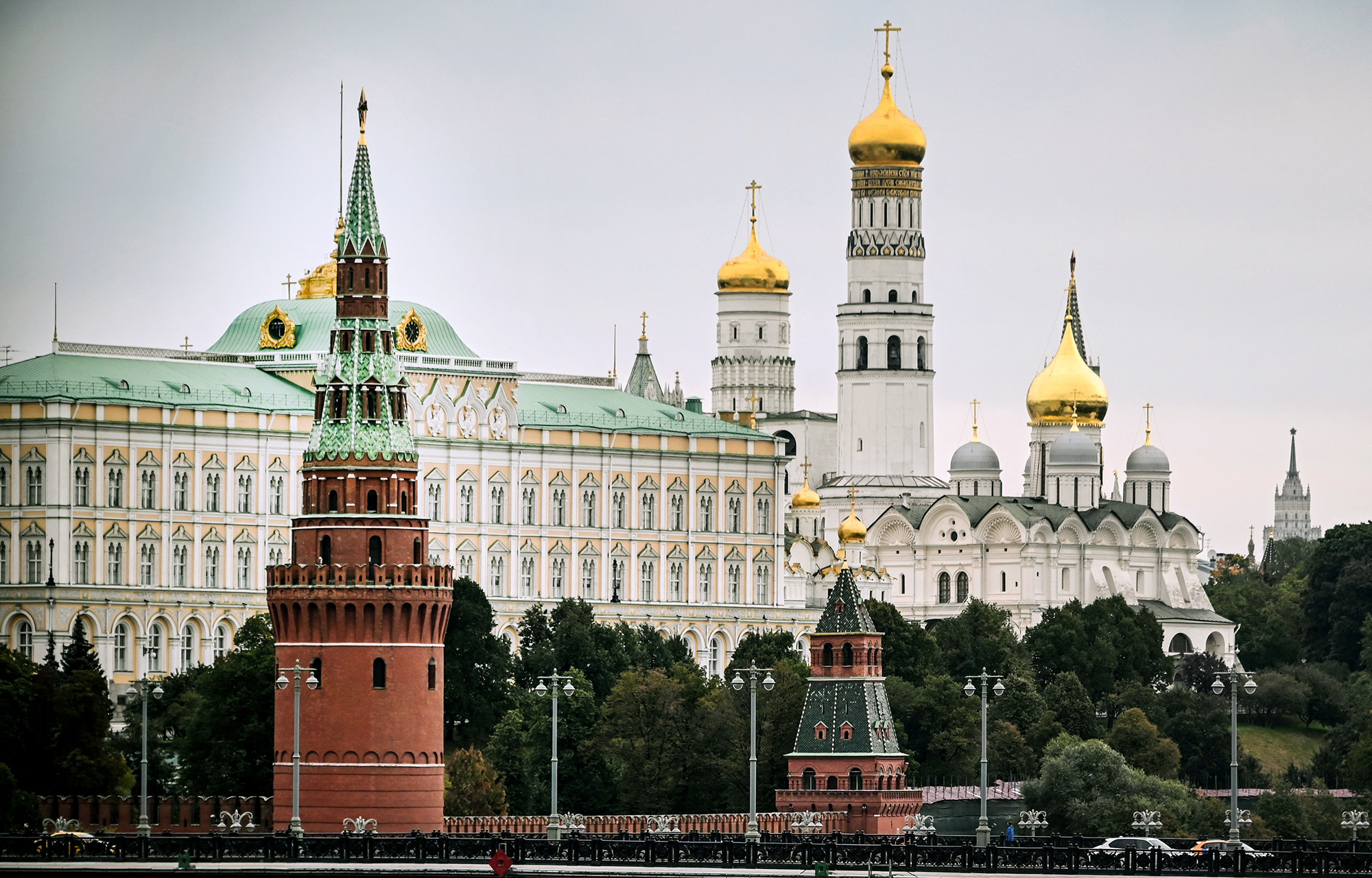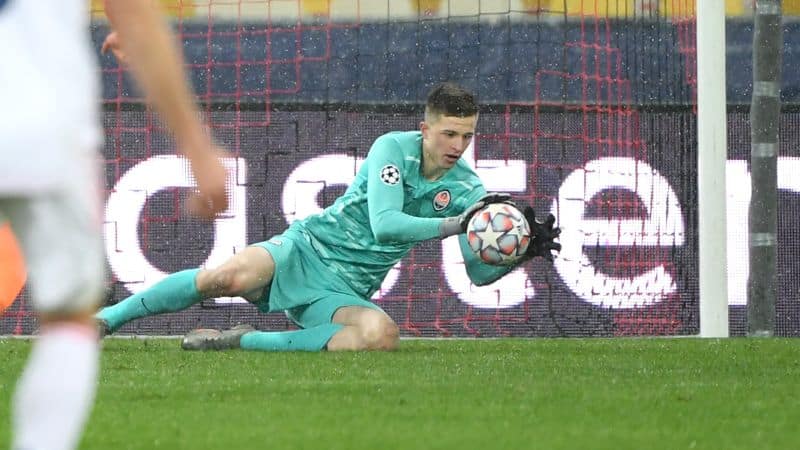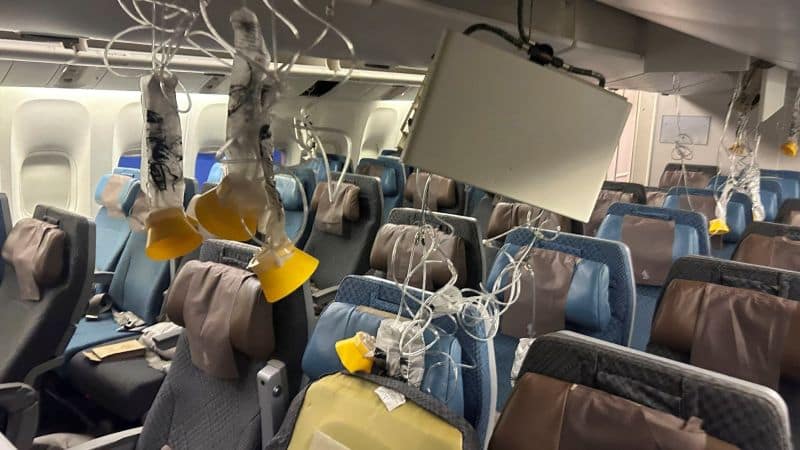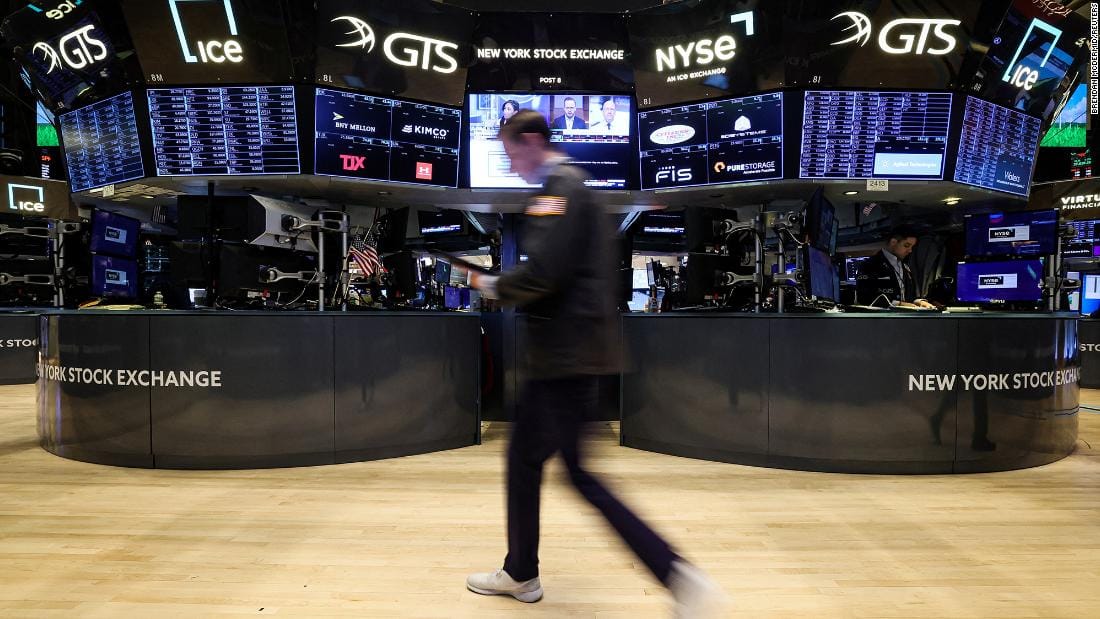Ten million Ukrainians are without power just as temperatures fall to freezing and below after more Russian missile attacks, President Volodymyr Zelensky said. CNN spoke to Kyiv residents and how they’re coping
Live updates: Russia’s war in Ukraine

US national security adviser Jake Sullivan confirmed Sunday that the US will allow European countries to start training Ukrainian fighter pilots to use F-16 fighter jets, after reports that Europe was awaiting formal approval.
“Yes, we will,” Sullivan told CNN’s Jake Tapper when asked. “The president has given a green light and we will allow, permit, support, facilitate and in fact provide the necessary tools for Ukrainians to begin being trained on F-16s, as soon as the Europeans are prepared.”
Sullivan noted that European leaders have said they need several weeks to prepare training abilities and that the US would meet whatever timeline they set out.
“The United States will not be the hold up in ensuring that this F-16 training can get underway,” he said.
Remember: Ukraine’s quest for the superior US-made fighter jets received a huge boost when the Biden administration said in May that it would back a training program for pilots and would not disallow allies from supplying Kyiv with the planes. But the US has not said that it will supply Kyiv with F-16s directly.
What US lawmakers are saying: Sen. Mark Kelly, an Arizona Democrat and former Navy pilot who sits on the Armed Services Committee, defended the timeline for directly supplying the fighting aircraft to Ukraine.
Responding to perceived criticism that the administration is slow-walking the decision to send F-16s, Kelly said in an interview with CNN on Sunday that it will take time and resources to train Ukrainian pilots on how to fly the aircraft in the first place.
“This is going to take some time. I don’t think it’s been slow-walked, but the process is a lot longer,” Kelly said, adding that during a visit to Ukraine in April, President Volodymyr Zelensky and his team still weren’t certain what specific combat missions they wanted to use the jets for.
By contrast, Sen. Dan Sullivan, an Alaska Republican and former Marine who also sits on the Armed Services Committee, criticized the Biden administration’s approach.
While he praised Biden for his actions at the recent summit for the NATO military alliance, he criticized the administration for “slow-rolling” weapons systems to Ukraine, specifically citing the F-16s.
“As I predicted, they’re eventually going to do it, but it’s too darn long. That’s exactly what happened,” said Sullivan.
Don't Miss
‘Putin is a killer,’ says Ukraine goalkeeper as he sends a message of hope to his country Shaktar Donetsk and
The aviation tracking site FlightRadar24 says, based on its data, that the turbulence on Singapore Airlines flight SQ321 occurred over
Stocks slid Friday after a slate of earnings beats from big banks fueled concerns that the Federal Reserve will raise
Live updates: Russia’s war in Ukraine

Senior Russian officials at the Kremlin and in the regions have been forbidden from leaving their posts, claims IStories, an independent Russian media outlet.
IStories is an online investigative news outlet based outside Russia and is run by a well-known journalist Roman Aninn, who said his sources included acquaintances of high-ranking officials in the Presidential Administration.
Aninn told CNN he did not know how many people had tried to quit but had not been allowed to. “However, I know of concrete examples of those who tried to quit. These are governors, [from the] security forces, and people from the presidential administration,” he said.
The journalist declined to provide names so as to protect his sources.
IStories said it had been told by a former officer of the Federal Security Service (FSB) that he knew of “at least two cases when governors tried to leave their posts,” but the Internal Policy Department of the Presidential Administration had banned them from resigning and had hinted at criminal cases against them.
There is no way to verify the claims, and Kremlin spokesperson Dmitry Peskov told CNN on Tuesday that reports about high-ranking officials being banned from resigning for the duration of the “special military operation” — as Moscow refers to the war in Ukraine — were “another hoax.”
Aninn said the policy was not formal and never conveyed in writing. “There can be no written refusals or recommendations, because the ban is illegal. It all happens informally. A governor of the region submits his resignation, he is summoned to the Department of Internal Policy, intimidated, called a traitor and threatened with a criminal case if he insists,” he noted.
According to a presidential decree, servicemen under contract (which would include the majority of FSB employees) cannot leave even after their contract expires.
The ban has two goals, Aninn said. If many people leave, then public administration may become unmanageable, so the ban would “prevent the loss of control,” he said, adding that the other goal is to “show the people and subordinates that the authorities are united, that everyone is in place and no one is going to run away.”
Don't Miss
‘Putin is a killer,’ says Ukraine goalkeeper as he sends a message of hope to his country Shaktar Donetsk and
The aviation tracking site FlightRadar24 says, based on its data, that the turbulence on Singapore Airlines flight SQ321 occurred over
Stocks slid Friday after a slate of earnings beats from big banks fueled concerns that the Federal Reserve will raise
Live updates: Russia’s war in Ukraine

Turkish President Recep Tayyip Erdogan announced an extension of the Black Sea grain deal Saturday, but he did not specify a new expiration date.
The deal, which was brokered by the United Nations and Turkey last July to guarantee safe passage for ships carrying vital grain exports from Ukraine, had been set to expire today.
“As a result of our negotiations with both parties, we extended the agreement period,” Erdogan said at an event in Turkey’s Çanakkale province.
“This agreement, which has provided the shipment of 25 million tons of grain to the world markets with more than 800 ships to date, is of vital importance for the stability of the global food supply,” Erdogan added. “I would like to thank the Russian and Ukrainian parties and the UN secretary general for their efforts to extend the agreement once again.”
The United Nations praised the extension in a statement.
“We remain strongly committed to both agreements and we urge all sides to redouble their efforts to implement them fully,” said Stéphane Dujarric, a spokesperson for the UN secretary-general.
Some context: The agreement comes after Russia said Monday it had agreed to a 60-day extension of the deal, while the UN emphasized on Thursday that the deal stated it would be extended for 120 days — not 60.
Why the grain deal is important: Ukraine and Russia are both significant suppliers of food to the world. Ukraine – known as one of the globe’s breadbaskets — normally supplies about 45 million metric tons of grain to the global market every year and is the world’s top exporter of sunflower oil. Together with Russia, it accounted for about one-quarter of global wheat exports in 2019.
Before Russia invaded Ukraine, the price of food was already at its highest level in a decade due to scrambled supply chains from the Covid-19 pandemic and extreme weather events.
In 2022, the number of people grappling with acute food insecurity — meaning their access to food was so restricted that it threatened their lives and livelihoods — shot up to 345 million from 135 million in 2019.
CNN’s Julia Horowitz contributed reporting to this post.
Don't Miss
‘Putin is a killer,’ says Ukraine goalkeeper as he sends a message of hope to his country Shaktar Donetsk and
The aviation tracking site FlightRadar24 says, based on its data, that the turbulence on Singapore Airlines flight SQ321 occurred over
Stocks slid Friday after a slate of earnings beats from big banks fueled concerns that the Federal Reserve will raise
Live updates: Russia’s war in Ukraine

Europe is scrambling to buy diesel fuel from Russia before a ban on imports comes into force in early February, but the frantic stockpiling is unlikely to prevent a new price shock for truckers, drivers and businesses.
In the first two weeks of January, European countries snapped up almost 8 million barrels of Russian diesel, according to energy data provider Vortexa, roughly on par with imports this time last year before Russia invaded Ukraine. Imports in the fourth quarter of 2022 were up nearly 19% on the same period the previous year.
Russia is the bloc’s biggest supplier, making up 29% of its total diesel imports last year, data from Rystad Energy shows.
Since Russia’s invasion in February last year, the European Union has made a huge effort to wean itself off Moscow’s oil and natural gas supplies.
EU countries drastically reduced their imports of crude from Russia ahead of the ban, but that isn’t happening with diesel because it’s much harder to find alternative sources of the fuel.
The EU ban will tighten the global market for diesel, according to Mark Williams, a research director at Wood Mackenzie, told CNN — unless Russia can successfully divert its cargoes to Latin America and Africa, regions which typically import from the United States. That would free up US barrels to be sent to Europe, plugging the gap left by Moscow, he said.
But importing diesel from suppliers further afield, including the United States and Saudi Arabia, will push up freight costs, feeding into higher consumer prices, he said.
“We are expecting diesel prices to rise in Europe. We’re expecting a spike sort of February, March time,” Williams said.
According to Wood Mackenzie’s estimates, the price of a barrel of diesel will average $40 for the first three months of this year. That’s up a whopping 470% from the average price for the whole of 2021, before Russia’s invasion sent prices soaring.
Read more here.
Don't Miss
‘Putin is a killer,’ says Ukraine goalkeeper as he sends a message of hope to his country Shaktar Donetsk and
The aviation tracking site FlightRadar24 says, based on its data, that the turbulence on Singapore Airlines flight SQ321 occurred over
Stocks slid Friday after a slate of earnings beats from big banks fueled concerns that the Federal Reserve will raise
Live updates: Russia’s war in Ukraine
Ten million Ukrainians are without power just as temperatures fall to freezing and below after more Russian missile attacks, President Volodymyr Zelensky said. CNN spoke to Kyiv residents and how they’re coping under these conditions.
Volodimyr Hontar, 32, is the head of the training department of the Emergency Medical Care Center in Kyiv. Due to the nature of his work, ambulance stations are always independent of power outages and have electricity. However, it’s when he comes home that problems begin.
“I live on the 9th floor, it’s hard to go up without the elevator, which is turned off during power outages,” he says. “But with my wife, it’s romantic by candlelight in the evenings.”
But Hontar is most concerned about soldiers at the front line. He says that if they’re alright, everyone will be alright.
Olena Kravchuk, 35, is a utility worker who lives in Irpin and works in Kyiv. The blackouts aren’t affecting her job because she works outside, but at home, her kids have trouble logging into school online and miss classes.
“If there is no electricity and gas, there will be no heat, we are very worried about it,” Kravchuck says. “When you come home from work, there’s no light, you can’t call your children, there’s no cell phone or internet.”
Elena Khaykina, 63, and Larisa Polyakova, 66, are pensioners displaced from Kharkiv who have been living in Kyiv for the past three months. Both women are very concerned about their loved ones who remain in Kharkiv.
“My son in Kharkiv has no electricity 24 hours a day, it worries me a lot,” Polyakova says. The power cuts are not as intense in the capital.
“We are from Kharkiv, and we are united here in Kyiv and try to support each other,” Khaykina says. The windows in her Kharkiv apartment are broken from shelling, and she cannot go back and survive winter there.
Bogdan, 30, is a food delivery man in Kyiv. Bogdan, who did not want to give his last name, says power outages affect his work because many cafes have to close, and there are less orders.
He also finds it difficult to charge his electric bike that he uses for deliveries. Heavier snow will make it more difficult to bike around the city.
When there is no power at home, he listens to audiobooks downloaded on his phone.
He worries about the soldiers in the trenches facing a harsh winter. And the rest, he says, “we will get through the rest.”
Don't Miss
‘Putin is a killer,’ says Ukraine goalkeeper as he sends a message of hope to his country Shaktar Donetsk and
The aviation tracking site FlightRadar24 says, based on its data, that the turbulence on Singapore Airlines flight SQ321 occurred over
Stocks slid Friday after a slate of earnings beats from big banks fueled concerns that the Federal Reserve will raise
“We highly appreciate the balanced position of our Chinese friends in connection with the Ukrainian crisis. We understand your questions and concerns in this regard,” Putin said in an opening speech of the meeting. “During today’s meeting, of course, we will explain in detail our position on this issue, although we have spoken about this before.”
The two authoritarian leaders have emerged as close partners in recent years, propelled by growing conflict with the West and a strong personal bond.
China has offered tacit support for Russia’s actions in Ukraine, while Moscow has backed Beijing and criticized Washington over US House Speaker Nancy Pelosi’s visit to Taipei in August. Beijing responded to her trip with unprecedented military drills around the self-governing democratic island, which it claims as its own territory.
In their meeting Thursday, Putin condemned the United States for what he said were “provocations” in the Taiwan Strait, and criticized what he claimed were attempts to “create a unipolar world.” Those attempts, he said, have “recently taken an ugly shape and are absolutely unacceptable to most states on the planet.”
The two are holding talks on the sidelines of a summit of the Shanghai Cooperation Organization, a regional security-focused grouping that also includes India, Pakistan and four Central Asian nations.
In a symbolic show of force and unity, Russian and Chinese navies conducted joint patrols and exercises in the Pacific Ocean just hours before their leaders’ meeting, according to Russia’s Ministry of Defense.
At the start of the meeting Thursday, Putin stressed the deepening economic ties between China and Russia, noting bilateral trade exceeded $140 billion last year. “I am convinced that by the end of the year we will reach new record levels, and in the near future, as agreed, we will increase our annual trade turnover to $200 billion or more,” he said.
Putin last met with Xi during a visit to the Chinese capital for its Winter Olympics in February this year. It was at that meeting that the two leaders framed their “no-limits’ partnership, and released a 5,000-word document voicing their shared opposition to the “further enlargement of NATO.”
For Xi, meanwhile, Thursday’s meeting comes as part of his first trip outside of China’s borders in more than two years, and just weeks before he seeks to secure a norm-breaking third term at a major political meeting in Beijing — a move that will cement his status as China’s most powerful leader in decades.
China has turned increasingly inward since the beginning of the pandemic, and continues to maintain a strict zero-Covid policy that limits outbound travel.
Xi’s trip to Central Asia is a return to the world stage and offers him an opportunity to show that despite growing tensions with the West, China still has friends and partners and is ready to reassert its global influence.
In a meeting with Kazakh President Kassym-Jomart Tokayev on Wednesday, Xi said China would like to partner with Kazakhstan to “remain pioneers in Belt and Road cooperation.”
Xi also told Tokayev that “China will always support Kazakhstan in maintaining national independence, sovereignty and territorial integrity,” Chinese state media reported.
The Chinese leader traveled to Uzbekistan on Wednesday evening and met with Uzbek President Shavkat Mirziyoyev. He also met the presidents of Kyrgyzstan, Tajikistan and Turkmenistan Thursday.
Don't Miss
Editor’s Note: Monthly Ticket is a CNN Travel series that spotlights some of the most fascinating topics in the travel
US national security adviser Jake Sullivan confirmed Sunday that the US will allow European countries to start training Ukrainian fighter
A view of the Kremlin in Moscow, Russia, on September 19, 2021. (Alexander Nemenov/AFP/Getty Images) Senior Russian officials at the
Live updates: Russia’s war in Ukraine

The last time Chinese leader Xi Jinping and Russian President Vladimir Putin sat down face to face, they declared triumphantly the arrival of a “new era” in international relations.
Amid a Western diplomatic boycott of the Beijing Winter Olympics and a looming crisis in Ukraine, the world’s two most powerful autocrats shared their vision for a new world order: it would better accommodate their nations’ interests, and no longer be dominated by the West.
In a 5,000-word joint statement, the two leaders declared a friendship with “no limits” and spelled out their shared grievances toward the United States and its allies.
“The world is going through momentous changes,” their joint statement said, noting the “transformation of the global governance architecture and world order.”
More than 200 days later, Xi and Putin are to meet again at a regional summit in the city of Samarkand in southeastern Uzbekistan. Much has changed, but not necessarily in ways China or Russia could have predicted.
Three weeks after meeting Xi in Beijing — and just days after the Winter Olympics ended, Putin launched a full-scale invasion of Ukraine. He had expected a quick victory, but seven months in, Russia is far from winning. Its forces are exhausted, demoralized, and fleeing territories they have occupied for months.
And that is making China nervous. Having grown ever closer to Moscow under Xi, Beijing has a direct stake in the war’s outcome. A defeated Russia will strengthen the West and become a less useful and reliable asset in China’s great power rivalry with the US. A weakened Moscow might also be less of a distraction for the US, thereby enabling Washington to focus more squarely on Beijing.
Xi has a fine line to tread. If he leans too much into helping Russia, he risks exposing China to Western sanctions and diplomatic blowback that would harm its own interests. The backlash would also come at a sensitive time for Xi, who is only weeks away from seeking a norm-breaking third term at the 20th Party Congress.
You can read more here
Don't Miss
‘Putin is a killer,’ says Ukraine goalkeeper as he sends a message of hope to his country Shaktar Donetsk and
The aviation tracking site FlightRadar24 says, based on its data, that the turbulence on Singapore Airlines flight SQ321 occurred over
Stocks slid Friday after a slate of earnings beats from big banks fueled concerns that the Federal Reserve will raise
Live updates: Russia’s war in Ukraine

The last time Chinese leader Xi Jinping and Russian President Vladimir Putin sat down face to face, they declared triumphantly the arrival of a “new era” in international relations.
Amid a Western diplomatic boycott of the Beijing Winter Olympics and a looming crisis in Ukraine, the world’s two most powerful autocrats shared their vision for a new world order: it would better accommodate their nations’ interests, and no longer be dominated by the West.
In a 5,000-word joint statement, the two leaders declared a friendship with “no limits” and spelled out their shared grievances toward the United States and its allies.
“The world is going through momentous changes,” their joint statement said, noting the “transformation of the global governance architecture and world order.”
More than 200 days later, Xi and Putin are to meet again at a regional summit in the city of Samarkand in southeastern Uzbekistan. Much has changed, but not necessarily in ways China or Russia could have predicted.
Three weeks after meeting Xi in Beijing — and just days after the Winter Olympics ended, Putin launched a full-scale invasion of Ukraine. He had expected a quick victory, but seven months in, Russia is far from winning. Its forces are exhausted, demoralized, and fleeing territories they have occupied for months.
And that is making China nervous. Having grown ever closer to Moscow under Xi, Beijing has a direct stake in the war’s outcome. A defeated Russia will strengthen the West and become a less useful and reliable asset in China’s great power rivalry with the US. A weakened Moscow might also be less of a distraction for the US, thereby enabling Washington to focus more squarely on Beijing.
Xi has a fine line to tread. If he leans too much into helping Russia, he risks exposing China to Western sanctions and diplomatic blowback that would harm its own interests. The backlash would also come at a sensitive time for Xi, who is only weeks away from seeking a norm-breaking third term at the 20th Party Congress.
You can read more here
Don't Miss
‘Putin is a killer,’ says Ukraine goalkeeper as he sends a message of hope to his country Shaktar Donetsk and
The aviation tracking site FlightRadar24 says, based on its data, that the turbulence on Singapore Airlines flight SQ321 occurred over
Stocks slid Friday after a slate of earnings beats from big banks fueled concerns that the Federal Reserve will raise















